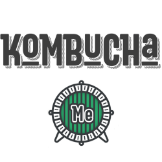

Our friends - The Good Bacteria
Probiotics (good bacteria) live in our intestines, especially our colons and do greatly to keep us healthy. They have antibiotic, antiviral, antifungal and anticancer effects, they are involved in vitamin and nutrient synthesis, and also aid in digestion. When we do not have enough Probiotics, the harmful bacteria, yeast and parasites in our intestines take over and produce disease.
There are over 400 different known species of bacteria that inhabit the normal bowel, excluding viruses, yeasts, and parasites. To put it another way, there are 20 times more bacteria in the body than there are cells AND more than the total number of people that ever lived on Earth. Therefore, having the right kind of bacteria in the gut is very important since the intestinal tract is home to some 100 trillion microorganisms, but only a few of them are friendly.
Probiotics have become an important part of nutrition because our microbial populations have been altered by the use of antibiotics and other substances that are designed to kill germs and disease. While practices, such as antibiotics, are effective at killing germs and disease, they are also effective in killing your beneficial bacteria. By introducing friendly microbes to your gut flora you can strengthen your resident micro flora.
History of probiotics
The 1908 Nobel Prize Winner, Ellie Metchnikoff showed that phagocytes destroy harmful bacteria in our bodies. The study of beneficial bacteria lead the Russian microbiologist to start drinking fermented milk and yogurt. Metchnikoff experienced improved health and well-being.
Metchnikoff studied the phenomenon of an incredible amount of people in Bulgaria living to be over 100 years old. He attributed their health and longevity to a microbe in the widely eaten Bulgarian yogurt, and he named the yogurt culturing microbe after the Bulgarians - Lactobacillus Bulgaricus.
The use of live microorganisms in the diet has a long history and is one of the oldest methods for producing and preserving food. Soured milks and such cultured dairy products as kefir, koumiss, leben, and dahi were often used therapeutically before the existence of microorganisms was recognized. Such dairy products are mentioned in the Bible and the sacred books of Hinduism.
Benefits of probiotics
- Normalize intestinal flora: Lactobacillus (acidophilus, casei, plantarum) and Bifidobacterium bifidum
- Stimulate the immune system: Lactobacillus (acidophilus, casei, rhamnosus, plantarum, delbrueckii, johnsonii) and Bifidobacterium bifidum
- Diarrhea associated with antibiotics: Lactobacillus (rhamnosus, acidophilus, bulgaricus), Saccharomyces boulardii, Bifidobacterium longum, and Enterococcus faecium.
- Diarrhea associated with traveling: Lactobacillus (rhamnosus, acidophilus, bulgaricus, johnsonii), Bifidobacterium bifidum, and Streptococcus (thermophilus, boulardii)
- Diarrhea associated with the Rotavirus: Lactobacillus rhamnosus, Bifidobacterium bifidum, and Streptococcus thermophilus
- Acute diarrhea: Bifidobacterium bifidum, Lactobacillus (bulgaricus, acidophilus, rhamnosusm, reuteri) and Streptococcus thermophilus
- Recurring Clostridium difficile colitis: Lactobacillus (rhamnosus, boulardii)
- Anti-tumor properties: Lactobacillus (acidophilus, casei, plantarum, delbrueckii, gasseri) and Bifidobacterium (longum, bifidum, adolescentis, infantis)
- Reducing lactose intolerance: Lactobacillus (bulgaricus, rhamnosus, johnsonii) and Streptococcus thermophilus
- Lowering fecal enzyme activity: Lactobacillus (rhamnosus, casei, gasseri, delbrueckii, acidophilus)
Natural sources superior than supplements
An independent testing lab found that eight out of 25 probiotic supplements tested contained less than 1% of either the number of live bacteria claimed on the label or the expected minimum of 1 billion. Health food store probiotic supplements provides only one or a few species of these good bacteria (most commonly Lactobacillus acidophilus, or a Bifidobacterium species), but there are over 400 different species of friendly bacteria and each of them has a definite job or function to do in our system. We need ALL of these species, not just a few! The best way to get them is through natural products. The most common fermented foods are kefir, yogurt, kombucha, miso, rejuvelac and kim chi. Much of the world depends upon various fermented foods as dietary staples.
Probiotics today
Many physicians are encouraging the use of probiotics such as the US government’s National Institutes of Health (NIH). Many doctors and health physicians believe in supplementing with probiotics for the purposes of:
- Treating certain illnesses and promoting general wellness
- Preventing disorders that typically occur in the urinary tract
- Alleviating symptoms of irritable bowel syndrome, diarrhea and other disorders
- Generate a healthy balance between good bacteria and other bacteria, ensuring that bad bacteria do not outnumber the good ones.
- Reinforce and enhance our immune system
- Help absorb minerals and nutrients as well as folic acid, biotin and vitamins B and K
- Assist enzyme activity in digesting carbohydrates and proteins
- Help flush out toxins
- Support the metabolism process
- Produce lactic acid to fight bad bacteria and to cleanse our colon
- Bring about acceptable levels of serum lipid and blood pressure
- And many other health uses

- Business Name
- Kombucha Me
- Business Category
- Breweries
- Official Website
- kombuchame.com.au
- Business Number
- 48626822553
- Social Links
- Phone Number
- 0424853380
- Business Location
- 76 Hume Hwy
Lansvale 2166
New South Wales
Australia


